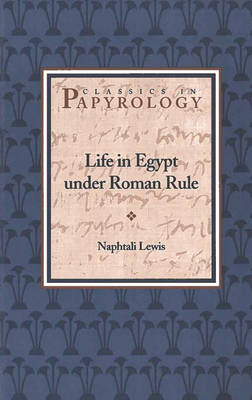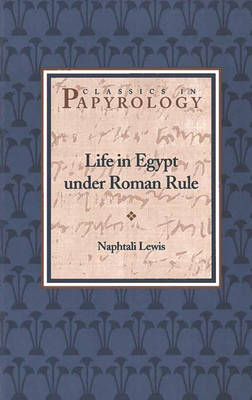
- Afhalen na 1 uur in een winkel met voorraad
- Gratis thuislevering in België vanaf € 30
- Ruim aanbod met 7 miljoen producten
- Afhalen na 1 uur in een winkel met voorraad
- Gratis thuislevering in België vanaf € 30
- Ruim aanbod met 7 miljoen producten
Zoeken
Omschrijving
This classic book by leading historian Naphtali Lewis describes the economy and society of Roman Egypt from the ground level up, using the testimony of papyri. The unique climate of Egypt has preserved tens of thousands of records, covering a period of some 4,000 years from 3000 BCE to 1000 CE. Focusing on just part of this period (30 BCE to 285 CE), this book offers the perfect introduction to the possible uses of such material. The author takes a thematic approach, discussing the various areas of daily life into which papyri offer unique insights. From the production of food, to "works and days of Gods and Goblins" and "rendering unto Caesar," Naphtali Lewis uses quotations from the sources combined with an encyclopedic knowledge of the cultural context to bring a seemingly obscure class of evidence to life.
Specificaties
Betrokkenen
- Auteur(s):
- Uitgeverij:
Inhoud
- Aantal bladzijden:
- 240
- Taal:
- Engels
- Reeks:
- Reeksnummer:
- nr. 1
Eigenschappen
- Productcode (EAN):
- 9780788505607
- Verschijningsdatum:
- 1/01/2001
- Uitvoering:
- Paperback
- Formaat:
- Trade paperback (VS)
- Afmetingen:
- 140 mm x 216 mm
- Gewicht:
- 294 g

Alleen bij Standaard Boekhandel
+ 67 punten op je klantenkaart van Standaard Boekhandel
Beoordelingen
We publiceren alleen reviews die voldoen aan de voorwaarden voor reviews. Bekijk onze voorwaarden voor reviews.











